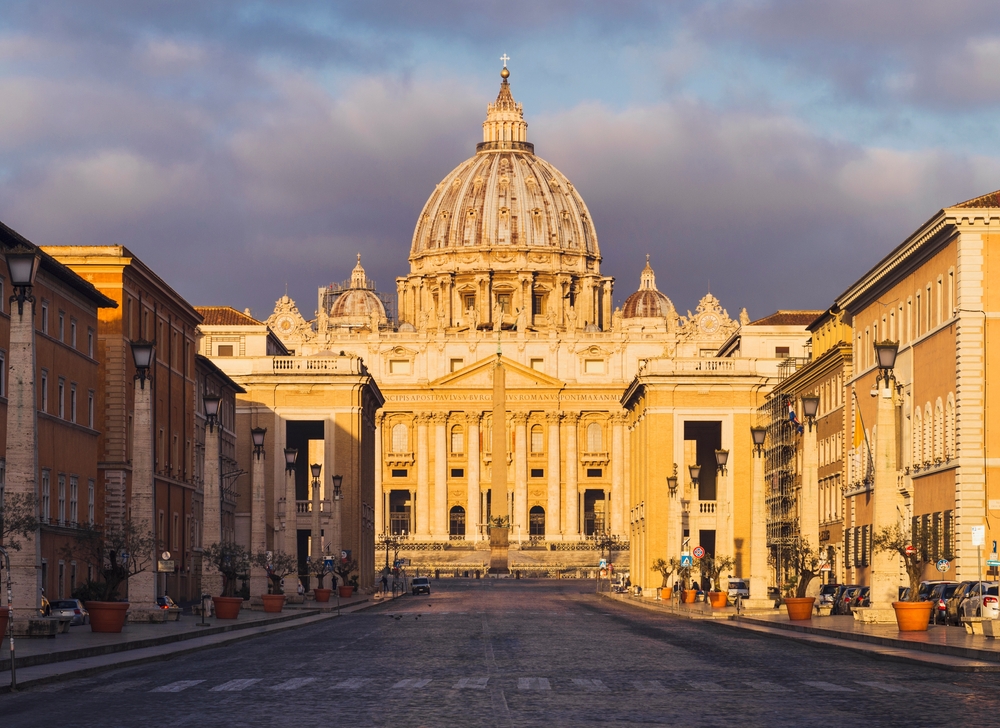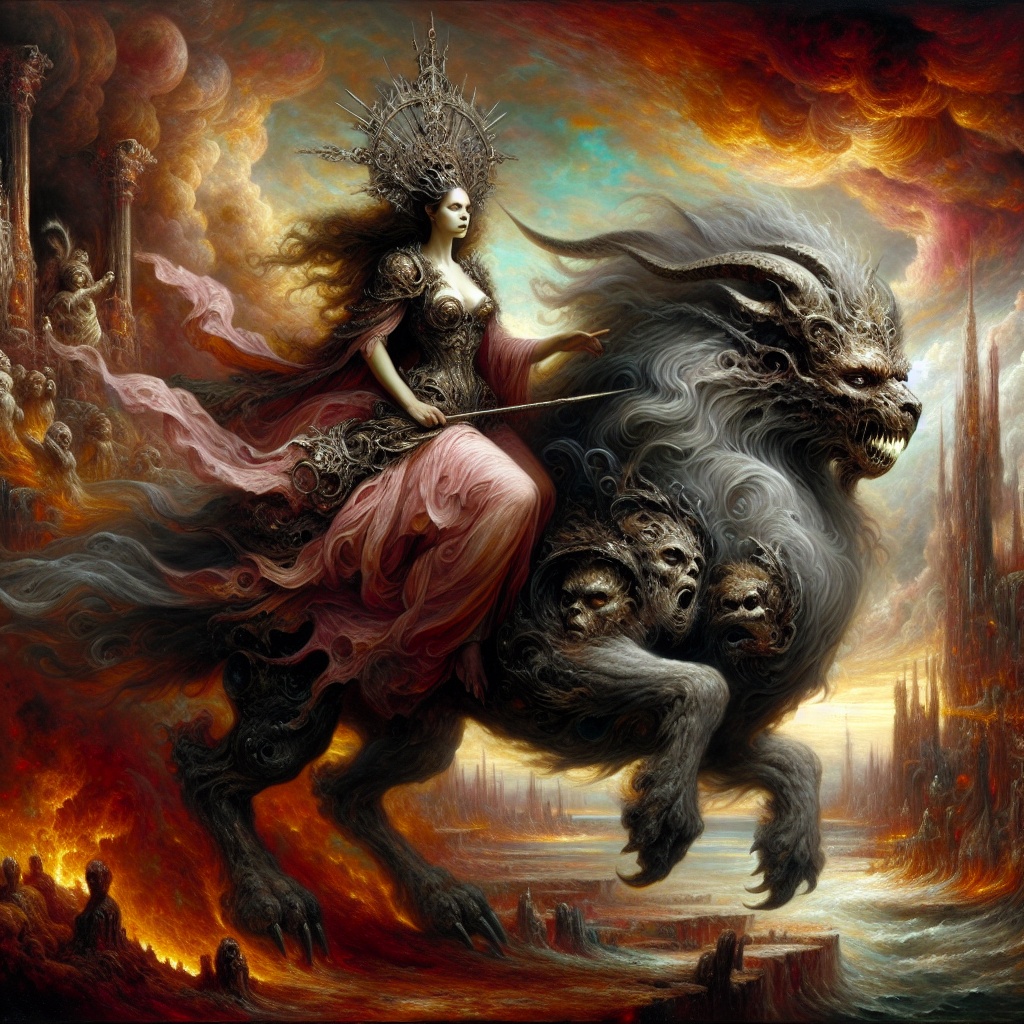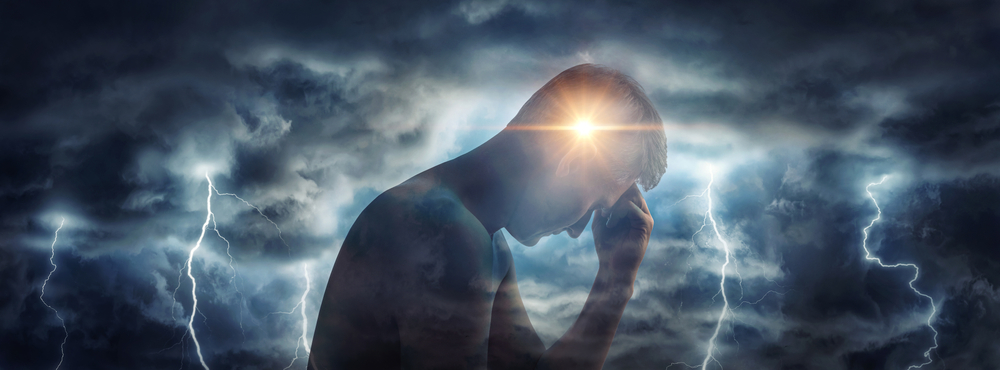
“It is the dogma that is the drama — not beautiful phrases, nor comforting sentiments, nor vague aspirations to loving-kindness and uplift, nor the promise of something nice after death — but the terrifying assertion that the same God who made the world lived in the world and passed through the grave and gate of death. Show that to the heathen, and they may not believe it; but at least they may realize that here is something that a man might be glad to believe.”
Dorothy L. Sayers
Letters to a Diminished Church
I once had a student who insisted that modern science and the Catholic faith stand in contradiction to one other since science is based on “facts” while Catholicism is rooted in blind obedience to “dogma.” That is, of course, the kind of adolescent drivel that happens when a nineteen year old reads Richard Dawkins while huffing hair spray in his grandma’s pantry, but it is also sadly indicative of a broad cultural prejudice these days even among our cultured elites who show increasingly – – every day and in every way – – that they are techno-nihilist barbarians. Dogma, of the religious variety at least, has fallen on hard times and is now just code in our society for a form of closed-minded, fundamentalist, religious irrationality that delights in ignorance as it wallows in the mud-pen of myth and superstition.
However, the hard lifting for such a benighted view of dogma had already been done by Christian’s themselves who long ago turned creedal affirmations into instruments of coercive fear mongering and, at times, State torture, followed by the self-immolation of Christianity in the Reformation’s creedal rebellions which made all dogmas suspect since they appeared more and more like mere assertions of non-evidentiary prejudices and less and less like anything resembling public truth claims. Then came modernity and Christians took two divergent paths with regard to dogmatic truth. On the one hand, and mostly in the Catholic sphere, dogmatic statements were weaponized as a defensive “bulwark” against modern errors even as theologians aped, ironically, the dominant rationalism of the time, constructing a form of scholasticism that treated dogmas as “first principles” from which “scientific” deductions could be made concerning the central truths of the faith. And those first principles were not argued for but were treated instead as epistemically certain since their source was the infallible God whose veracity could not be distrusted. There was certainly no theo-drama in this construal of dogma with its forensic certitude and legal-brief aesthetic. It was the “Court theology” for a vision of the Church still viewed through the lens of Renaissance and Baroque aristocracy. And it had as much to do with maintaining papal prerogatives in the face of the death throes of that old aristocratic Europe as it did with the truth of Jesus Christ. It had no evangelical punch or power, no simplicity of soul, and no connatural feel for the untamed profligacy of the Jesus of the Gospels, which is the kind of dramatic element Dorothy Sayers is speaking of in her quote above.
The other path was that of liberal Protestantism with its expressivist view of dogma as the outward symbolization in mythic categories of inner religious dispositions and experiences. Thus, as with the scholastics, there is no theo-drama in this view of dogma since there can be no dramatics when there is no antagonist and the whole dramatic structure is just protagonists all the way down. For if dogmas are not ecclesial expressions of non-negotiable theological truths rooted in Revelation, and are mere projections of some kind of collective subconsciousness, then there is no dramatic goad against which to kick. No irritant in the oyster to create the pearl. Furthermore, dogma viewed as the “thematization” of transcendental, anthropological teleologies crashed and burned with the realization that our transcendental horizon could point just as easily to a tragic ending to our desires in the void of a faceless and voiceless infinity just as much as it points to a fulfillment in a personal God. All truly dramatic notions of dogma eventually flattened out metaphysically as the “mystery” of our own subjectivity came to be viewed in largely psychological and evolutionary categories. Subjectivity ceased to be a portal to anything beyond its own categories and was no longer viewed as an opening up to mystery in the proper theological sense. Subjectivity soon thereafter degenerated into something “suspicious” since it is riddled with occult forces and with our deeply nested libidinous desires that are at war with each other. It is a short step from there to a view of dogma as the mythic expression of deeply problematic subjective forces, requiring therefore a radical deconstruction of its forms in order to “expose” its latent violence, racism, sexism, homophobia, xenophobia, and whatever other “phobias” are currently au courant.
So it is understandable if our secular contemporaries take a jaundiced look at our dogmas. Because we actually don’t seem to believe in them, which is a strange thing for a dogma. But why am I starting a blog post on David Hart’s universalism with this seemingly pointless foray into the sad state of dogmas in the modern world? Because Hart is dismissive of the dogmas concerning Hell, especially in the West, and is critical of theologians who see the strength of his arguments but who refuse to “get on board” the universalist monorail simply because of their antecedent commitments to the Roman dogmatic tradition. He views this as an intellectually dishonest move lacking in the courage of intellectual conviction. Hart says in his book that he finds the doctrine of an eternal Hell so utterly bestial in a moral sense that he does not care if his views run afoul of any dogmas. I admire his convictions and this is a critique that cuts close to the bone for me since I do think Hart is largely correct in his views on Hell. I have some caveats about his approach which I will examine in part two of this series, but I find his arguments deeply persuasive generally speaking. However, owing to my theological commitments to the Roman dogmatic tradition I cannot simply embrace his views without qualification. And as I hope to show below I do not think this is intellectually “dishonest” or lacking in courage, and I think Hart is a bit unfair to his Catholic interlocuters on this score.
Let me begin by saying right up front that I refuse to enter into the game of eschatological census taking and cannot even pretend to have the epistemological certitude of either the infernalists or the universalists concerning matters that are clearly not given to us to know. At least it seems to me that we are not given to know such things since the Dominical statements concerning Hell so loved by the infernalists may very well be merely admonitory rather than predictive (or even provisional, as with God’s judgement on Nineveh), and the putatively universalist statements in Paul’s epistles and John’s Gospel are not, in my view, as straightforwardly universalist as is often claimed since the promises contained therein could be merely conditional.
I say “could be” since the New Testament gives us no clear hermeneutical guidepost one way or the other and just leaves the question in a state of tension, as Balthasar correctly points out. Hart disagrees with that view and argues that the New Testament does indeed teach universalism. But I disagree and I think Balthasar is correct to see the New Testament’s statements on Heaven and Hell as a continuation of the “two ways” theology of the Old Testament where God makes it clear to the children of Israel that there are indeed separate paths that one must choose between: the path of life and the path of death. Therefore, I further agree with Balthasar that the “tension” between the two binaries in the New Testament is not a tension of contradiction, as Hart seems to think Balthasar is saying, but rather the tension created by the fact that God, in his scriptures, seems to leave the resolution of the final outcome of the two ways in open-ended suspension, heightening the dramatic nature of the interplay between divine and human freedom. This motif of the “two ways” is thus the interpretive key to understanding the Gospel’s treatment of eschatology: the separation of the sheep and the goats, the wise versus the foolish virgins, the wise versus the foolish servants and their use or misuse of the “talents,” the wide path that leads to perdition with many on it versus the narrow path that leads to life with few on it, the “light” versus “darkness” motif of John’s gospel, all display this two ways motif in a conscious repositioning of the binaries away from Torah and Temple as their focus, and onto Christ.
Now it may well still be that Hart is correct and that all of these binaries will eventually be overcome and surpassed in a final apokatastasis. My only point here is that Balthasar’s exegesis of the New Testament is not claiming that there is some kind of deep contradiction between the infernalist and universalist verses which we must just now “accept” and “live with” as an ambiguity in the scriptures. His claim is more deeply theological and involves the entire trajectory of salvation history’s theo-dramatic encounter as an open-ended call from God in the midst of the “crisis” of choosing. And that the crisis of choosing is henceforth also a crisis of Christological encounter since it is Christ who ultimately resolves the crisis in his Incarnation, passion, descent into Hell, resurrection, and ascension. Indeed, a crisis that was inchoate in the Old Testament but which now comes into full view in the New. This is not, in other words, an exegesis centered upon ambiguity as its motif, but rather on evangelical choosing in the midst of the Christological Ernstfall.
Therefore, I am not in the camp of the infernalists or the universalists, and even my endorsement of Balthasar’s views on the matter is on the cautious side, preferring to interpret his views in the most minimalist manner possible, as I think any honest reading of his works will support. In other words, I am not one of those who thinks Balthasar was secretly a universalist but just did not have the courage to say so in the face of Roman dogmas to the contrary. Rather, I think he meant what he said when he affirmed, as I did above, that Revelation does not give us to know the answer to the question: how many are saved? Those who read Balthasar’s views maximally as a closeted endorsement of universalism (e.g. Ralph Martin) do so, in my view, with an agenda that seeks to impute these views to Balthasar in order to cast suspicion upon him, thus undermining his message of theological hope for the salvation of all.
Therefore, if you want to know what theological “camp” I am in on this matter just put me down as in the camp of the ignorant. And I proudly proclaim my ignorance and will happily put on an eschatological dunce’s cap and sit in a dark corner forever staring at an icon of Christ’s descent into Hell. And so I propose on this topic yet another theological category in the grand and growing taxonomy of positions: the “cloud of unknowing” school. For now, it is sufficient to say that all I know is that we are made for union with God in Heaven, that Christ came to get us there, that he wants none of us to go to Hell, and if we follow his path in faith as his disciples, we all have a good shot at salvation. Beyond that, it seems to me, there is only speculation that all too often takes the epistemic form of “here is what I would do if I were God.” Using our moral and speculative reason is one thing, but to assume a “God’s eye-view” of things beyond the veil, and which Scripture describes in highly metaphoric ways, in order to make firm and certain theological statements is quite another. And that goes for the infernalists as well as the doctrinaire universalists.
As a theological theory I find universalism interesting and attractive, but when it is put forward as a dogmatic claim rooted in Revelation it is for me a bridge too far. Furthermore, the dogmatic tradition of my communion does not allow me that pathway. Put in its bluntest construal and without any frilly, word-salad obfuscations, the Catholic Church teaches definitively that the punishments of Hell are “eternal,” that there can be no post-mortem conversions, and, therefore, those who die with unrepented mortal sins go to Hell for all eternity. Here is what the Catechism of the Catholic Church says:
“1035 The teaching of the Church affirms the existence of hell and its eternity. Immediately after death the souls of those who die in a state of mortal sin descend into hell, where they suffer the punishments of hell, “eternal fire.”615 The chief punishment of hell is eternal separation from God, in whom alone man can possess the life and happiness for which he was created and for which he longs.”
A universalist might retort to all of this, “so much the worse then for the Roman magisterium.” And indeed, as I noted above, Hart does take this view and states clearly that no matter what the dogmatic claims, it is just bestial nonsense to believe in an eternal Hell and he would rather deny the truth of any such dogmas rather than affirm such a monstrous idea. And it might surprise my readers when I say that I agree with him in the sense that one cannot simply jettison one’s moral and speculative reason out of a blind obedience to authority. Indeed, it is with those same moral and rational faculties that I reached the conclusion in the first place that the Roman Magisterium’s claims for itself are true. I cannot then turn around and say, “but all further uses of my moral and speculative reason are now deeply untrustworthy and I must lay them aside in the face of the Roman authority.” Hart is entirely correct, therefore, when he states that words like “love,” “justice,” and “mercy” cannot mean something equivocally different in God than how we understand them in our creaturely discourse. Because if that were true then a special Revelation from God in our historical time is a silly and incoherent idea on its face and we should just all shut up and become agnostics or Buddhists (or both.) The properly Catholic path is the way of analogy and so we are not exonerated from the hard work of making sense of Revelation using our intellect. The entire two thousand year history of theologizing in the Church makes this clear and any attempt to smooth off the rough edges of “tough” doctrines like an eternal Hell through recourse to mystifications and deflections is just a superficial fideism unworthy of true faith.
Nevertheless, I am not a Protestant and I have no desire to become a magisterium of one. (please note: I am not saying that this is what Hart is doing. His is a moral claim as we shall see.) Using my reason – – a reason informed by decades of contemplation and study in the pedagogy of the faith – – I have committed myself to the truth of a particular theological paradigm. It is the paradigm of Roman Catholicism. And within that paradigm there have been many moments when I sat back and said to myself, “hmmm, that can’t be true, can it?” I would then set myself to further prayer and study in order to deepen my understanding of the doctrine in question, a doctrine which I most often eventually come to see in an even deeper light as a result of my questioning, which then leads me to embrace the doctrine even more profoundly. Therefore, I do not shrink from the difficult questions but in truth seek them out. Because that is what a theologian does if he is worth his salt as an ecclesial thinker. And if there remain aspects of certain nettlesome doctrines that still go round and round in my head I find it is fruitful to hold them in a creative “tension” with the overall theological paradigm as I seek to grow into a deeper understanding.
In other words, not every theological “problem” needs to have an immediate answer ready at hand. The late, great E.F. Schumacher in his marvelous little book, “A Guide for the Perplexed” points out that most often in life we are confronted with only two kinds of problems. There are “convergent” problems where all roads of inquiry eventually land upon a single point solution. This is common in the hard sciences. And once the solution is reached everyone nods their head and says, “yep, that’s the answer!” But there are also “divergent” problems where a pluralism of solutions is possible owing to the opacity and inherent mystery of the object in question. These kinds of problems are common in the human sciences, such as economics or psychology, which often give rise to a multiplicity of various “schools of thought” on the topic. Certainly, theology falls into this category as well and this is what gives dogmatic statements their dramatic quality as openings to a grand mystery which we must now struggle to understand. My criticisms of scholastic theology therefore revolve around precisely this point. The scholastics treated dogmatic statements as convergent, single-point answers to questions. And to a certain extent they are right about this. Dogmas, after all, have to mean something quite specific on a conceptual level or else they aren’t really dogmas at all but mere poetry. However, that conceptual specificity is precisely, qua its specificity, always already an opening to an asymptotic understanding of the greatest mystery of all – – God – – and thus cannot be viewed undramatically as a conversation stopper. In a dogma something is indeed always “closed” but in a manner that is also an opening since when God unveils himself to us it is, at the same time, an even deeper veiling, e.g. the Incarnation does indeed reveal God to us, but the very incarnation itself is the deepest mystery of all.
This ecclesial/theological commitment of mine to this understanding of the Roman Catholic dogmatic tradition is a firm one of deep conviction and I have neither the time nor the inclination to defend it in this blog against anti-Catholic combox warriors since this site is not devoted to “Roman Catholic apologetics.” I will leave that to others who do it far better than I. And so, to my universalist readers who are hoping that I will waive the white flag of surrender and yell out “sic semper tyrannis” as I leap out of the papal balcony and into Origen’s swimming pool, I can only say that your wait will be a long one. It is not cowardice or a loss of nerve that keeps me from embracing universalism, and quite frankly it is insulting to be told so after spending decades studying the faith as well as having taken a few unpopular and career destroying commitments along the way. And if you want to talk about dishonest intellectual moves there is nothing more dishonest than the thinly veiled ad hominem form of argumentation that involves imputing motives of self-interested cowardice toward those readers of Hart who are actually deeply sympathetic to his project but who, at the same time, have other intellectual commitments to consider.
Hart’s supporters will often say to me that I know in my heart that universalism is correct but I only reject it because of an antecedent commitment to a set of dogmatic statements from a magisterial authority. And if that were true then they would be spot-on in his criticisms. But it isn’t true. I am deeply drawn to universalism and find Hart’s speculations on the topic profoundly persuasive. But here again what this rises to is not a paradigm destroying moment, but rather another example of holding a piece of theological speculation in tension with that paradigm as I study the issue further and think about it ever more systematically. I want to take Hart’s compelling arguments and bring them into my Catholic commitments with full force and allow them to bang against the gates of the Castle like a battering ram employed by Orcs at Helm’s Deep. The gates might be smashed and there might be dead elves and dwarves littered all about at the consummation of the struggle. But out of that intellectual struggle what I hope for is the emergence of a deeper understanding of what the Church teaches about Hell and why, in the end, it just might be the case that nobody ever stays there forever. That is not cowardice or “blind obedience to Roman dogma.” It is rather what one often does when doing theology within an ecclesial vocation. And as in the hard sciences, one does not just chuck out the window an entire and well established theoretical paradigm simply because one is confronted with a few pieces of anomalous evidence. You merely note the dissonance and then set about trying to understand the objects of your inquiry more deeply.
I know that this blog post will disappoint my universalist readers since it does not yet address Hart’s arguments. That will be in the next post and my analysis will be largely sympathetic. But I wanted to begin the conversation with a centered discussion of the importance of dogmas for Catholic thinkers as dramatic openings to mystery in order to forestall the idea that my continuing acceptance of the Roman dogmatic tradition on Hell is going to be an obstacle to the conversation. However, if my universalist interlocuters want to engage in the game of labeling anyone who disagrees with you, however slightly, as moral imbeciles or slaves to Roman dogma, then quite frankly I have no interest in discussing the matter further. Because absent dogmatic commitments a theologian is little more than a Gnostic. We can debate the question of whether or not the Roman dogmas are correct or not. That is fair game. But what I won’t discuss is whether or not Catholics are cowardly fools for continuing to adhere to Rome. Because I know far too many supremely intelligent and brave Catholics and far too many cretinous and cowardly Orthodox to put up with that kind of Eastern triumphalist nonsense. If you think I am worth dialoguing with then you must accept and respect that you are dialoguing with a Catholic. And so if you have zero respect for the Catholic dogmatic tradition and view it with contempt, then maybe I am not your guy.
C.D.M. “Catholic dogmas matter.”
Dorothy Day, pray for us.








